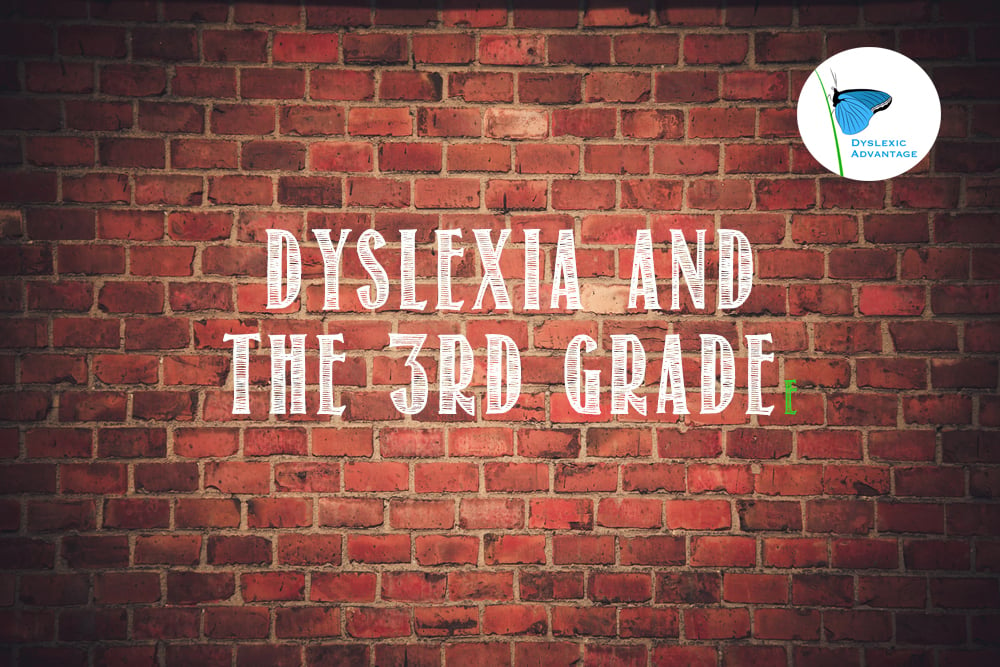This article is aimed at anyone who… is dyslexic, or thinks they might be wishes to help dyslexic adults to engage with books is interested in ways to engage with books What are these tips? 7 things that help me to engage with any book; 3 things that...
Let Them Listen – Audiobooks and Dyslexia [Premium]
Let Them Listen! “The objective of the present research study was to understand what benefits the use of audiobooks (both school-books and books of various genres, recorded on digital media) could bring to preadolescents and adolescents with developmental dyslexia. Two groups, each consisting of 20 adolescents, were compared. The experimental group used the audiobooks, while the control group continued to use normal books. After 5 months of experimental training, the experimental group showed a significant improvement in reading accuracy, with reduced unease and emotional–behavioural disorders, as well as an improvement in school performance and a greater motivation and involvement in school activities.” – Milani et al., Dyslexia (journal) It’s surprising how often we continue to hear that dyslexic students are denied the use of audiobooks […]
Bridging the Gap to Reading Long Words [Premium]
In our last post, we wrote about the 3rd grade gap or wall. Dyslexic students typically get through the hard slog of phonemic awareness and then parents and teachers breathe a sigh of relief. Many times, the extra work fades away and students are integrated back into their usual classroom routine. All seems well, but a problem may remain. Reading remains effortful and the complexity of the text goes up. Students may not be able to keep up. With little extra help and too little time to complete assignments, the “guess and go” approach may dominate the reading strategy so that the gap between peers increases. A large part of the problem may be that students have not effective strategy to read long words. These problems can come […]
Dyslexia and the Third Grade Wall
If you're not aware if the '3rd Grade Wall', you can get blind-sided. A recurring theme that we hear about when we interview accomplished dyslexic men and women is the trouble and failure (often grade retention) that happens in the 3rd grade. Why? What's the big deal...
Dyslexic Advantage Premium – Issue 11 Organizing Creativity [Premium]
Premium Issue 11 October 29, 2016 Organizing Creativity, Stealth Dyslexia, Dyslexia and Self Image, Memorizing for School, What Worked for 2E Gifted Dyslexics, Art Therapy for Dysgraphia, Hands-On Math for Fractions, More Interactive Reading Strategies, Mastering Foreign Languages and More This issue has memory strategies that seem to be helpful for a majority of dyslexic folk – whether it’s history facts, science vocabulary, or foreign languages. Subscriptions support Dyslexic Advantage. [/wcm_restrict]
How to Read to Kids with Dyslexia – Reading As a Conversation [Premium]
There are many good ways to read to children with dyslexia. In this post, we wanted to talk share an approach that some have called “dialogic” or like a dialogue. A dialogue is a back and forth conversation, and that is exactly how this style of reading goes. Rather than having a parent or teacher read aloud with a child listening, in dialogic reading, the adult helps the child tell the story. The acronym for this method is PEER: 1. Prompt a child to say something about the book. 2. Evaluate her response. 3. Expand the response by rephrasing and adding more detail, and 4. Repeat the prompt to make sure the child learned. Except for the first reading of the book, PEER sequences should […]
Choosing the Right Reading Level Books for Students with Dyslexia [Premium]
It’s often told to parents that a “Five Finger Rule” can help you choose whether a book is at the right reading level for a student. The rule states that if a student misses five or more words, it may be too hard, no words and it might be too easy, and three words and it’s ‘just right’. The problem for dyslexic students is that the “Five Finger Rule” may prevent them accessing print information at their intellectual level and if reading aloud is the guide for the rule, then it’s possible they may never be granted access to higher level books even if they are university professors! In fact, pioneering work by Rosalie Fink (see research paper below for Premium members), showed that accomplished […]
[Premium] Q & A: Can People with Dyslexia Learn Speed Reading ?
This question comes up frequently. Can older dyslexic students and adults learn ‘speed reading’ and if so, how? The short answer is YES, but it’s only usually a subset of people who can do this. Young children who are still struggling with decoding are not good candidates for speed reading, but some upper elementary and older folks may be able to do it – although when they do they will likely be skimming and not reading all the words. Recently a member of our community volunteered to share her son’s experiences with speed reading. Rather than doing software or an app, she took the low-tech approach with a workbook and exercises that had her timing her son as he read books of their own […]
[Premium] What to Do If a Reading Curriculum Doesn’t Work
It happens to everybody. You research a curriculum thoroughly or it gets through several levels of a review and then you put it into action and… it just doesn’t connect. What do you do? There are several common reasons why a curriculum doesn’t connect with a particular student – and so some trial and error and modification need to take place. The most common reasons that certain curricula fail for a particular student include: 1. Going Too Fast Because there can be difficulty registering information accurately (sounds, letters, words), a student may need to slow the pace down considerably if the lessons aren’t sinking in. It may seem counterintuitive if you feel a student is slipping farther behind, but reducing work and simplifying […]
Q & A: Can Someone Be Both Dyslexic and Autistic ? [Premium]
QUESTION: Is it Possible to Have Both Dyslexia and Autism? The short answer is yes, but it’s likely not very common and in general many of the features of dyslexia and autism are opposite. By strict criteria, low IQ and autism are excluded from the diagnosis of dyslexia. However, it is not difficult to speculate that a child with family dyslexia could also have autism either through inheritance or through some environmental factor. The main thing to consider is that it may be much more common that a child with dyslexia has social factors unrelated to autism or a child with autism has reading and writing problems unrelated to dyslexia. In fact, typically dyslexic and autistic children have different cognitive, memory, and perceptual patterns although they […]
Why It’s Hard to Proofread and Read Fluently [Premium]
It can be maddening. You look and look you just don’t see it. Later you pass your work along, you see all the thing you hadn’t seen the first time round. What’s going on ? You’ve experienced a ‘trick’ of perception. In our clinic, when trying to explain the phenomenon to children, we often use the analogy of optical illusions…when you see something that’s not there or you miss something – that later you can’t believe you could see at the start. These tricks of perception are what adds to the time needed for many dyslexic students on classroom and standardized exams. It accounts for why some teachers may be flabbergasted by a student’s need for extended time, when they seem so quick with problem solving […]
STRONGER Interconnected Retelling of Stories by Dyslexic Children
In a recent study, researchers found that children with dyslexia (2nd-5th graders) had a better ability to discuss links between a text read compared to fellow students who were at the same decoding level. This might be early evidence of the 'big picture' strengths...


![Let Them Listen – Audiobooks and Dyslexia [Premium]](https://www.dyslexicadvantage.org/wp-content/uploads/2017/02/reading-audiobooks-our-shutterstock-scaled.jpg)
![Bridging the Gap to Reading Long Words [Premium]](https://www.dyslexicadvantage.org/wp-content/uploads/2016/11/Screen-Shot-2016-11-04-at-9.52.37-AM.jpg)

![Dyslexic Advantage Premium – Issue 11 Organizing Creativity [Premium]](https://www.dyslexicadvantage.org/wp-content/uploads/2016/10/Screen-Shot-2016-10-29-at-4.27.33-PM.jpg)
![How to Read to Kids with Dyslexia – Reading As a Conversation [Premium]](https://www.dyslexicadvantage.org/wp-content/uploads/2016/10/mom-reading.jpg)
![Choosing the Right Reading Level Books for Students with Dyslexia [Premium]](https://www.dyslexicadvantage.org/wp-content/uploads/2016/10/reading-bulb-our-shutterstock-scaled.jpg)
![[Premium] Q & A: Can People with Dyslexia Learn Speed Reading ?](https://www.dyslexicadvantage.org/wp-content/uploads/2016/09/Screen-Shot-2019-09-09-at-10.18.08-AM.jpg)
![[Premium] What to Do If a Reading Curriculum Doesn’t Work](https://www.dyslexicadvantage.org/wp-content/uploads/2016/09/our-shutterstock-puzzle.jpg)
![Q & A: Can Someone Be Both Dyslexic and Autistic ? [Premium]](https://www.dyslexicadvantage.org/wp-content/uploads/2016/09/dyslexia-autism.jpg)
![Why It’s Hard to Proofread and Read Fluently [Premium]](https://www.dyslexicadvantage.org/wp-content/uploads/2016/09/Screen-Shot-2017-10-07-at-1.49.34-PM.png)














